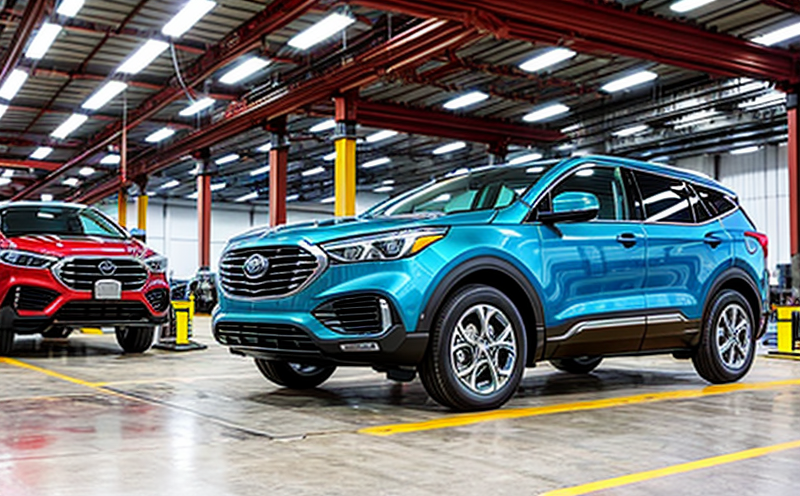Structural testing in the automotive industry
The Crucial Role of Structural Testing in the Automotive Industry Ensuring Safety and Performance
As the automotive industry continues to evolve at a rapid pace, manufacturers are under increasing pressure to produce vehicles that not only meet but exceed regulatory standards for safety and performance. With the constant threat of recalls, fines, and damage to brand reputation, companies can no longer afford to take chances when it comes to ensuring the structural integrity of their vehicles.
This is where Eurolabs laboratory services come in providing businesses with the expertise and cutting-edge technology necessary to conduct comprehensive structural testing on automotive components. In this article, well delve into the importance of structural testing in the automotive industry, highlighting its advantages, benefits, and applications.
What is Structural Testing in the Automotive Industry?
Structural testing involves subjecting automotive components or full vehicles to a range of mechanical stresses, simulating real-world conditions to assess their ability to withstand impact, fatigue, and other forms of loading. This type of testing helps manufacturers identify potential weaknesses, flaws, or areas for improvement, enabling them to optimize design, materials, and manufacturing processes.
Structural testing in the automotive industry encompasses various techniques, including
Impact testing evaluating a components or vehicles ability to absorb energy during collisions
Fatigue testing assessing a components or vehicles durability under repeated loading cycles
Crash testing simulating high-speed crashes to evaluate occupant safety and structural integrity
Drop testing subjecting components or vehicles to controlled drops from varying heights
Advantages of Structural Testing in the Automotive Industry
By incorporating structural testing into their development process, automotive manufacturers can enjoy a range of benefits that set them apart from competitors. These advantages include
Enhanced Safety Features
Improved crashworthiness
Reduced risk of injury or fatality
Compliance with regulatory requirements
Increased Product Reliability and Durability
Increased lifespan of components
Reduced maintenance costs
Enhanced overall vehicle performance
Reduced Liability and Risk
Minimized risk of recalls and associated financial losses
Protection against lawsuits and reputational damage
Cost Savings through Design Optimization
Streamlined design processes
Efficient use of materials
Reduced testing costs through optimized designs
Competitive Advantage and Market Differentiation
Demonstrated commitment to safety and performance
Enhanced brand reputation and customer trust
Increased market share and sales revenue
Key Benefits of Structural Testing in the Automotive Industry
While the advantages of structural testing are clear, its essential to consider the specific benefits for different stakeholders
Manufacturers and OEMs
Improved product quality and reliability
Reduced liability and risk exposure
Enhanced competitiveness through optimized designs
Regulatory Bodies
Compliance with safety and performance standards
Ensured public safety through enforced testing protocols
End-Users (Consumers)
Increased peace of mind due to enhanced vehicle safety features
Confidence in the reliability and durability of their vehicles
Enhanced overall driving experience through optimized performance
QA Frequently Asked Questions about Structural Testing in the Automotive Industry
What types of components can be tested using Eurolabs structural testing services?
Our laboratory provides comprehensive testing for a wide range of automotive components, including but not limited to body-in-white (BIW), chassis, suspension, steering, brakes, and electrical systems.
How does Eurolabs structural testing service differ from other forms of testing?
Eurolabs structural testing services utilize cutting-edge technology and expert analysis to provide a comprehensive understanding of component behavior under various loading conditions, setting us apart from more basic testing methods.
What are the typical applications of structural testing in the automotive industry?
Structural testing is applied throughout the development process, from initial design evaluation to final product validation, with key applications including
New vehicle development
Component optimization and redesign
Crash testing and safety assessment
Regulatory compliance and certification
What benefits can automotive manufacturers expect from collaborating with Eurolab?
By partnering with Eurolab, companies can tap into our expertise in structural testing to improve product quality, reduce liability, and enhance competitiveness through optimized designs.
How do I get started with Eurolabs structural testing services?
To initiate a project with Eurolab, simply contact us to discuss your specific needs and requirements. Our team will guide you through the process, ensuring seamless collaboration from initial consultation to final report delivery.
In conclusion, structural testing is an essential component of the automotive industry, playing a vital role in ensuring safety, performance, and regulatory compliance. By partnering with Eurolabs laboratory services, manufacturers can unlock a range of benefits that set them apart from competitors, drive business growth, and protect their brand reputation.




